Many drugs for Fragile X syndrome have failed in large clinical trials, but candidates that target new aspects of the condition may fare better.
Read moreAuthor: FRAXA Research Foundation
NKCC1 Inhibitor Bumetanide Corrects Synaptic and Circuit Hyperexcitability in Fragile X Mouse Model
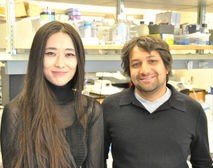
With $258,000 in grants since 2013 from FRAXA Research Foundation, Dr. Anis Contractor and Dr. Qionger He at Northwestern University are exploring the potential of the available drug bumetanide to correct altered GABA signalling in a mouse model of Fragile X syndrome.
Read moreNon-Invasive Imaging as a Biomarker for Fragile X Clinical Trials
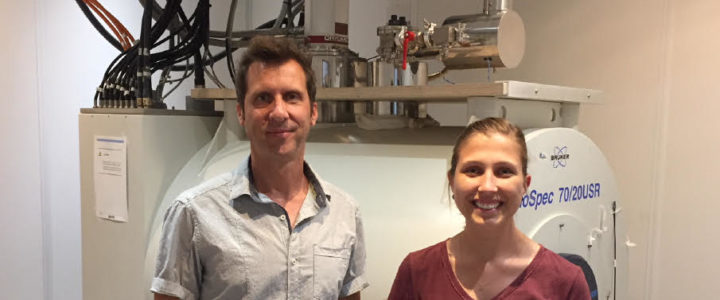
FRAXA Research Foundation has renewed Kamila Castro’s 2017 FRAXA Fellowship for a second year. With this $90,000 award, Kamila Castro and Principal Investigator Dr. Andreas Frick are using non-invasive magnetic resonance imaging (MRI) methodology to assess connectivity changes in the brain in Fragile X. If this project is successful, we will have objective outcome measures to evaluate new treatments, both in mice bred to mimic Fragile X and in human patients.
Read moreHow Promising is CRISPR for Fragile X?

Peter Todd, MD, PhD, Assistant Professor in the Department of Neurology in the University of Michigan Medical School, was awarded a FRAXA Research Grant for gene reactivation with the use of CRISPR. In this interview he tells us about CRISPR in Fragile X research, how realistic is it that it could turn the Fragile X gene back on, and if it can really cure Fragile X.
Read moreNiagara Falls went Teal for Fragile X Awareness

On Sunday, July 22 at 10:00 pm, Niagara Falls was lit up teal to honor National Fragile X Awareness Day! We are extremely grateful to the Niagara Falls Illumination Board for making this happen. The teal lighting created a spectacular experience for all the spectators on both sides of the falls.
Read moreRetinoic Acid Signaling is Blocked by Fragile X Mutation
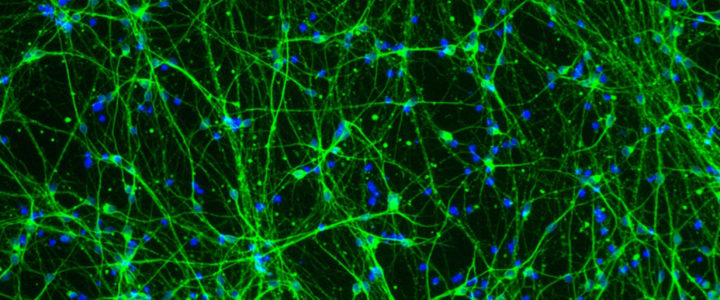
With a 2013-2014 FRAXA Research Grant, Principal Investigator Marius Wernig, PhD and FRAXA Fellow Samuele Marro, PhD at Stanford University found that the Fragile X mutation impairs homeostatic plasticity in human neurons, by blocking synaptic retinoic acid signaling. Retinoic acid is a metabolite of Vitamin A. The system they have developed could provide a powerful new cellular biomarker for screening many treatment approaches.
Read moreFragile X Research Impacted by a Small Group of Thoughtful, Committed Citizens
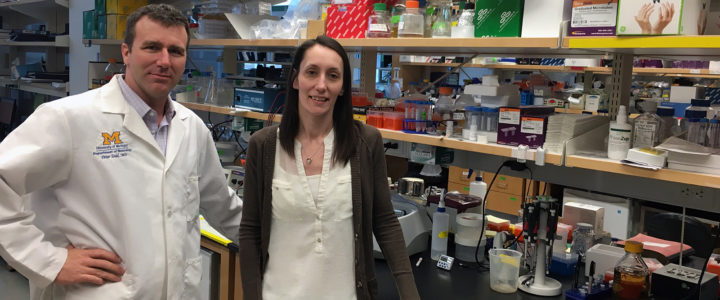
Theirs was an effort by a small group of thoughtful, committed members of the Fragile X Association of Michigan (FXAM) to be sure. The entire project took months! But it was hard work well worth the effort. After writing and revising (and revising), FXAM was awarded a $35,000 grant which the Michigan Fragile X group will now direct to Dr. Todd’s ongoing Fragile X research involving CRISPR!
Read moreRinging the Bell at the New York Stock Exchange for Fragile X Awareness
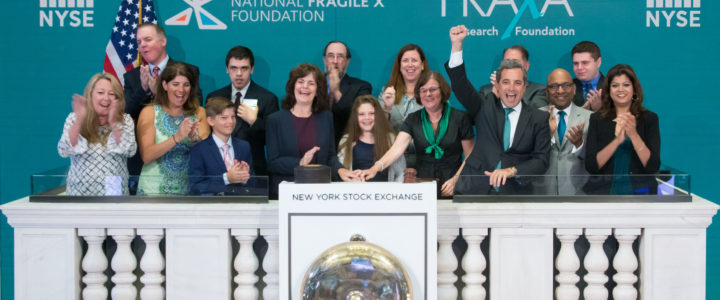
FRAXA Research Foundation was honored to be part of the opening bell ringing ceremony at the New York Stock Exchange (NYSE) on July 5, 2018. We were there to raise awareness for Fragile X along side the National Fragile X Foundation. FRAXA President Katie Clapp and Director of Community Relations Dave Bjork attended with over 30 Fragile X family members and friends, including 4 self-advocates. This was a great opportunity to raise awareness of Fragile X on a big stage at an iconic place. The event was also carried live on television on CNBC, giving FRAXA and Fragile X broad reach around the world.
Read moreActivity-Dependent Translational Profiling in Fragile X Neurons

FRAXA’s first-ever grant to researchers at the University of California at Berkeley goes to Dr. Nicholas Ingolia and Dr. J. Wren Kim to analyze the proteomics of Fragile X neurons using a newly developed tool which can distinguish the profiles of neurons that are actively responding to signals.
Read moreTetra Discovery Partners Initiates Phase 2 Trial of BPN14770 in Fragile X Syndrome
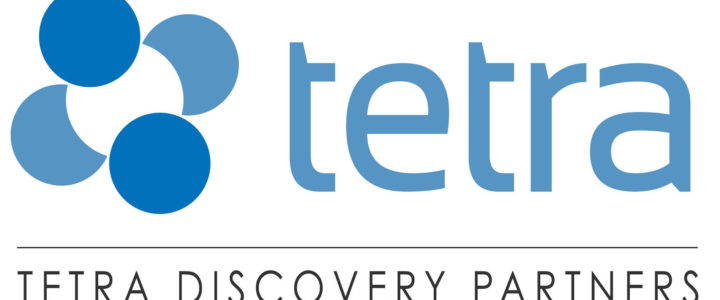
This 2-Period Crossover Study of BPN14770 is accepting adults males with Fragile X syndrome at Rush University Medical Center in Chicago. Principal Investigator of the study is Elizabeth Berry-Kravis, MD, PhD.
A selective inhibitor of the phosphodiesterase type-4D (PDE4D), BPN14770 has shown the ability to improve the quality of connections between neurons and to improve multiple behavioral outcomes in the Fragile X mouse model.
Understanding and Reversing Hypersensitivity to Sounds in Fragile X Syndrome
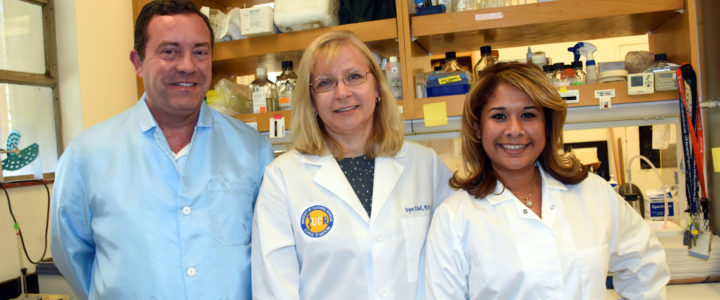
With a $90,000 grant from FRAXA Research Foundation over 2018-2019, Drs. Devin Binder, Iryna Ethell, and Patricia Pirbhoy at the University of California at Riverside aim to understand – and reverse – hypersensitivity to sound in Fragile X syndrome.
Read moreMeet Drew!

Meet #FriendofFRAXA Drew! If you would like to nominate someone as a #FriendofFRAXA, we welcome all who have been touched by Fragile X, including friends, grandparents, siblings, professionals and companions alike to become a #FriendofFRAXA with the goal of putting a face to Fragile X for those who may not know someone directly.
Read moreThree-Dimensional Model for Identifying Fragile X Treatments
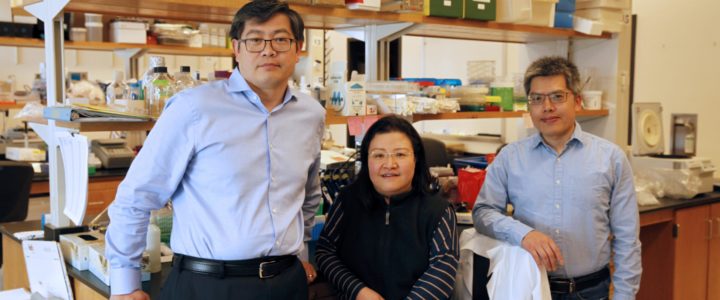
With a $90,000 grant from FRAXA Research Foundation awarded in 2018, Dr. Peng Jin and Dr. Juhnee Kang at Emory University will develop and analyze Fragile X brain organoids to understand the disorder and identify treatment targets.
Read morePharmacological Tolerance in the Treatment of Fragile X Syndrome
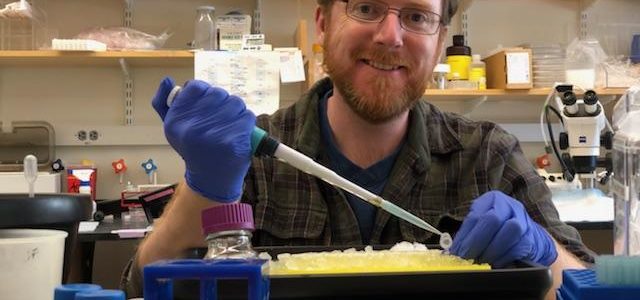
With a $90,000 grant from FRAXA Research Foundation over 2018-2019, Dr. Patrick McCamphill, postdoctoral fellow in Dr. Mark Bear’s lab at Massachusetts Institute of Technology (MIT), is investigating drug tolerance to mGluR5 antagonists, arbaclofen, and other potential Fragile X treatments. He is also exploring ways to overcome it.
Read moreLysogene Partners with FRAXA Investigator Dr. Hervé Moine to Develop Gene Therapy for Fragile X

A research project funded by FRAXA has led to new fragile x gene therapy initiative, this time in France. Lysogene, a French biopharmaceutical company working to develop gene therapy treatments for brain disorders, is partnering with FRAXA Investigator Dr. Herve Moine to tackle Fragile X syndrome.
Read moreFRAXA Funded Researchers Present at MA Fragile X Conference
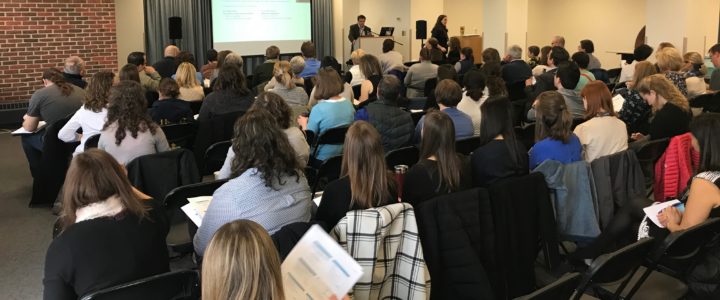
On Saturday Boston Children’s Hospital (BCH) hosted a Fragile X educational conference. Success Strategies for Individuals and Families Impacted by Fragile X and two of our funded researchers, Dr. Craig Erickson, and Carol Wilkinson, MD, PhD, presented giving an update on their current Fragile X clinical trials. Both being funded by FRAXA.
Read moreMeet Zack!
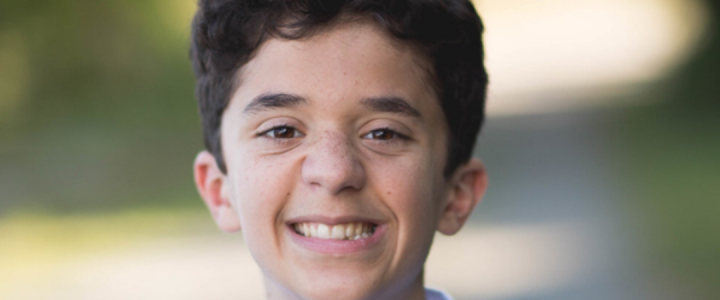
Meet #FriendofFRAXA Zack! If you would like to nominate someone as a #FriendofFRAXA, we welcome all who have been touched by Fragile X, including friends, grandparents, siblings, professionals and companions alike to become a #FriendofFRAXA with the goal of putting a face to Fragile X for those who may not know someone directly.
Read moreMeet Noah!

Meet #FriendofFRAXA Noah! If you would like to nominate someone as a #FriendofFRAXA, we welcome all who have been touched by Fragile X, including friends, grandparents, siblings, professionals and companions alike to become a #FriendofFRAXA with the goal of putting a face to Fragile X for those who may not know someone directly.
Read moreMeet Theo!

Meet #FriendofFRAXA Theo! If you would like to nominate someone as a #FriendofFRAXA, we welcome all who have been touched by Fragile X, including friends, grandparents, siblings, professionals and companions alike to become a #FriendofFRAXA with the goal of putting a face to Fragile X for those who may not know someone directly.
Read moreRepurposing Study II: Evaluating Combinations of Drugs to Treat Fragile X
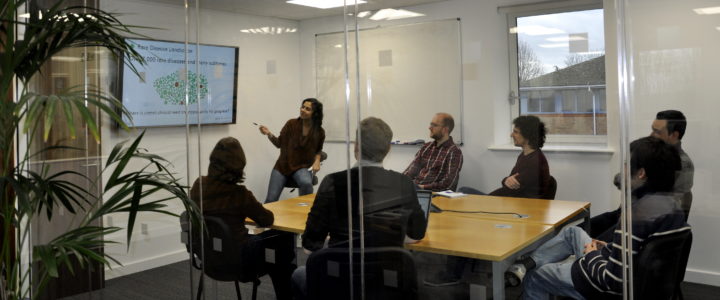
FRAXA Research Foundation initially partnered with Healx in 2016 to identify existing drugs with potential to treat Fragile X syndrome, using machine learning algorithms and computational biology. The study produced results, and now FRAXA and Healx have launched a new round of studies to evaluate combinations of compounds, including both drugs and natural products.
Read moreMeet Giovanni!

Meet #FriendofFRAXA Giovanni! If you would like to nominate someone as a #FriendofFRAXA, we welcome all who have been touched by Fragile X, including friends, grandparents, siblings, professionals and companions alike to become a #FriendofFRAXA with the goal of putting a face to Fragile X for those who may not know someone directly.
Read moreFragile X Clinical Trial of AZD7325 in Adults

With a $51,000 grant from FRAXA Research Foundation, Dr. Craig Erickson conducting a double-blind, placebo-controlled clinical trial of AZD7325 in adults ages 18-50 with Fragile X syndrome at Cincinnati Children’s Hospital. The compound being studied is an investigational new drug from AstraZeneca that targets GABA (A) receptors.
Read moreMeet Adam!

Meet #FriendofFRAXA Adam! If you would like to nominate someone as a #FriendofFRAXA, we welcome all who have been touched by Fragile X, including friends, grandparents, siblings, professionals and companions alike to become a #FriendofFRAXA with the goal of putting a face to Fragile X for those who may not know someone directly.
Read moreFRAXA Annual Appeal Raised $760,000

Thanks to your generous support, we surpassed our annual appeal goal of $600,000 and are one step closer to finding effective treatments and, ultimately, a cure for Fragile X syndrome. From November 6 to December 31, collectively we raised over $760,000 from over 1,000 donors! This means we will also receive the matching gift of $600,000 from the Sunshine Lady Foundation! We’d like to express our sincere gratitude to all of our donors who generously gave to FRAXA Research Foundation in 2017 and look forward to continuing the promising translational Fragile X research momentum in 2018.
Read moreMeet Graham!

Meet #FriendofFRAXA Graham! If you would like to nominate someone as a #FriendofFRAXA, we welcome all who have been touched by Fragile X, including friends, grandparents, siblings, professionals and companions alike to become a #FriendofFRAXA with the goal of putting a face to Fragile X for those who may not know someone directly.
Read more
